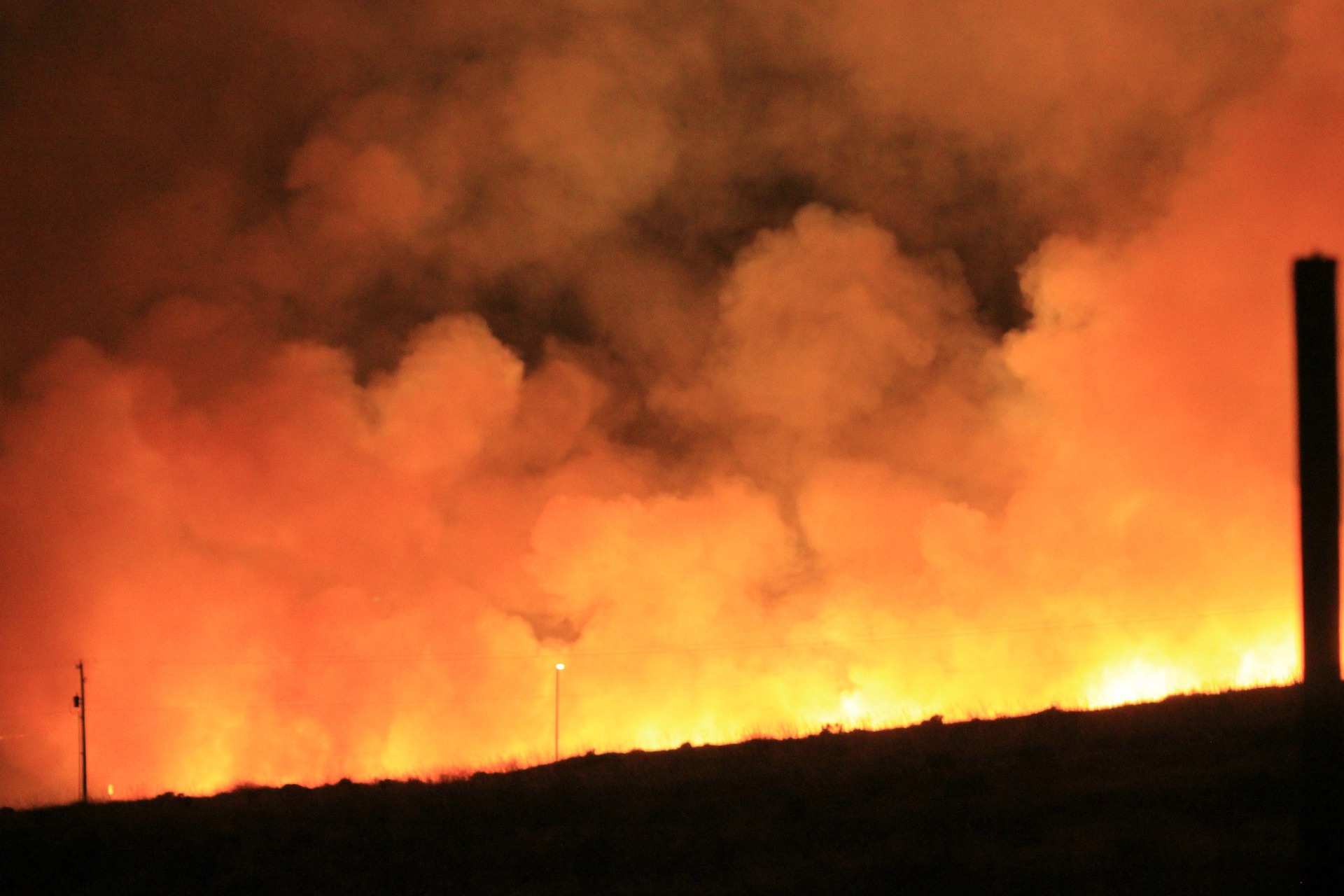*** Caution: Contents Hot! ***
"Climate change kills. It kills people, it kills our ecosystems, our biodiversity and destroys the things most precious to those affected."
Those were the words of Spain’s Prime Minister Pedro Sánchez, reacting to the worst summer of wildfires in the country for 15 years.
The links between the accelerating climate and ecological emergency (CEE) to increasingly extreme weather events are well-known. The frequency of these events has increased dramatically over the last twenty years, the unmistakable connections between the human-induced climate catastrophe of continued rampant fossil fuel exploitation and use to extreme heat being the most well-established of all.
Beyond Spain, the European heatwave has created and accelerated fires across France too, particularly in the south-west of the country where over 20,000 hectares of forest (about 50,000 acres) have burned, forcing tens of thousands to flee their homes. The heatwave is estimated to have claimed the lives of over 1,000 people in Portugal, with wildfires charring over 45,000 hectares (111,000 acres) of land along with ‘extreme drought’ being experienced by citizens. In the United Kingdom—which recorded July 19, 2022 as its highest ever temperature of 40.3°C (104.5°F)—firefighters battled wildfires across the country as the London Fire Brigade had its busiest day since World War Two, and hospitals were forced to turn patients away on account of the heat.
Clearly, Europe is not alone in experiencing extreme heat. In January, a South American heatwave meant Buenos Aires recorded its second-highest temperature ever, with over 700,000 people losing power, while the extreme heat battered the regions’ crops and economy, as some politicians accelerate this destruction further. Heatwaves in India this March (which have since continued) saw temperatures consistently between 3-8 °C (37-46 °F) above average - the hottest since records began 122 years ago - with researchers finding the deadly heat, which also gripped neighbouring Pakistan, 30 times more likely on account of human-induced climate change.
Following record-breaking heat in 2021 and subsequent wildfires that blew from coast-to-coast, 100 million US citizens are currently facing ‘excessive heat warnings’ or ‘heat advisories’; while China has experienced power shortages and crop failures as a result of extreme heat, with catastrophic heatwaves predicted over the coming weeks too.
Heatwaves are a matter of climate justice

Photo: Pixabay
Perhaps the most important and least-discussed fact during these heatwaves in the Global North is that of ‘heat-stress inequality’. This refers to the reality that both within and between countries, heatwave exposure over the last decade has been felt disproportionately by the lowest-income regions compared to highest-income areas.
Much like the Covid-19 pandemic, while heatwaves may seem a phenomenon experienced equally by all, extreme weather events clarify deep-rooted structural inequalities which make the experiences of marginalised and vulnerable groups that much worse.
Within countries, recent reporting has shown how China’s latest heatwave exposes growing ‘climate inequality’ as workers are forced to choose between personal safety and providing for their families while working in extreme conditions; while in India it is the poor who bear the brunt of searing heat.
From a UK perspective, research co-authored by Friends of the Earth and the University of Manchester published in July of this year shows how the poorest communities and those from minority ethnic groups are most likely to live in areas at highest risk from heatwaves in the UK, despite having contributed the least to creating and accelerating the crisis, both historically and through lifestyle choices today.
Between countries, global inequalities are stark, with one study demonstrating how countries ranked ‘low’ on the UN Development Programme’s ‘Human Development Index’ are expected to suffer greater exposure to heatwaves at 1.5 °C warming than populations living in countries ranked ‘high’ on the HDI scale at 2 °C of warming. This reality is made starker by a report, forecasting the displacement of over 1 billion climate refugees by 2050 from countries least well-equipped to combat and cope with the extreme weather events.
The final nail in this coffin? The bleak realities of a multilateral system which ought to be ensuring historical reparations are paid to account for loss and damages experienced by countries on the frontline of the CEE; or that debts accrued by countries in the Global South owing to structural political-economic inequalities built into the international system are re-invested into ensuring a just transition globally, but which is failing to live up to the task and do either.
Where is the truth?
Despite all of this, if you were to look at European mainstream media, taking the BBC in the UK as an example, the links between these rampant extremes and the structural causes of the CEE are not obvious at all.
At the time of this writing, since publishing an article on the 29th March about the Meteorological Office’s dubious decision to ‘redefine’ what a heatwave means as the dial shifts ever-upwards, the BBC has published 194 items directly or indirectly related to the heatwaves scorching the UK. Yet a quick survey of these stories reveals that there are more items about keeping pets cool than about fossil capital driving the CEE and thus the heat we are experiencing!
Depressingly, the BBC is one of the better UK media outlets in terms of actively publicizing the emergency to its readers and listeners, as Carbon Brief's excellent review of 'heatwave reportage' in the UK shows. As far as ‘telling the truth’ on heat is concerned—both in current political discourse and mainstream media coverage around the world—we still have a long way to go.
As the temperatures continue to rise, we must also turn up the heat on complicit media and governments. While for some it may seem like a novelty, for others this heat has been a crippling reality for too long, and it will soon become our ‘new normal’ unless we tell the truth and act now.